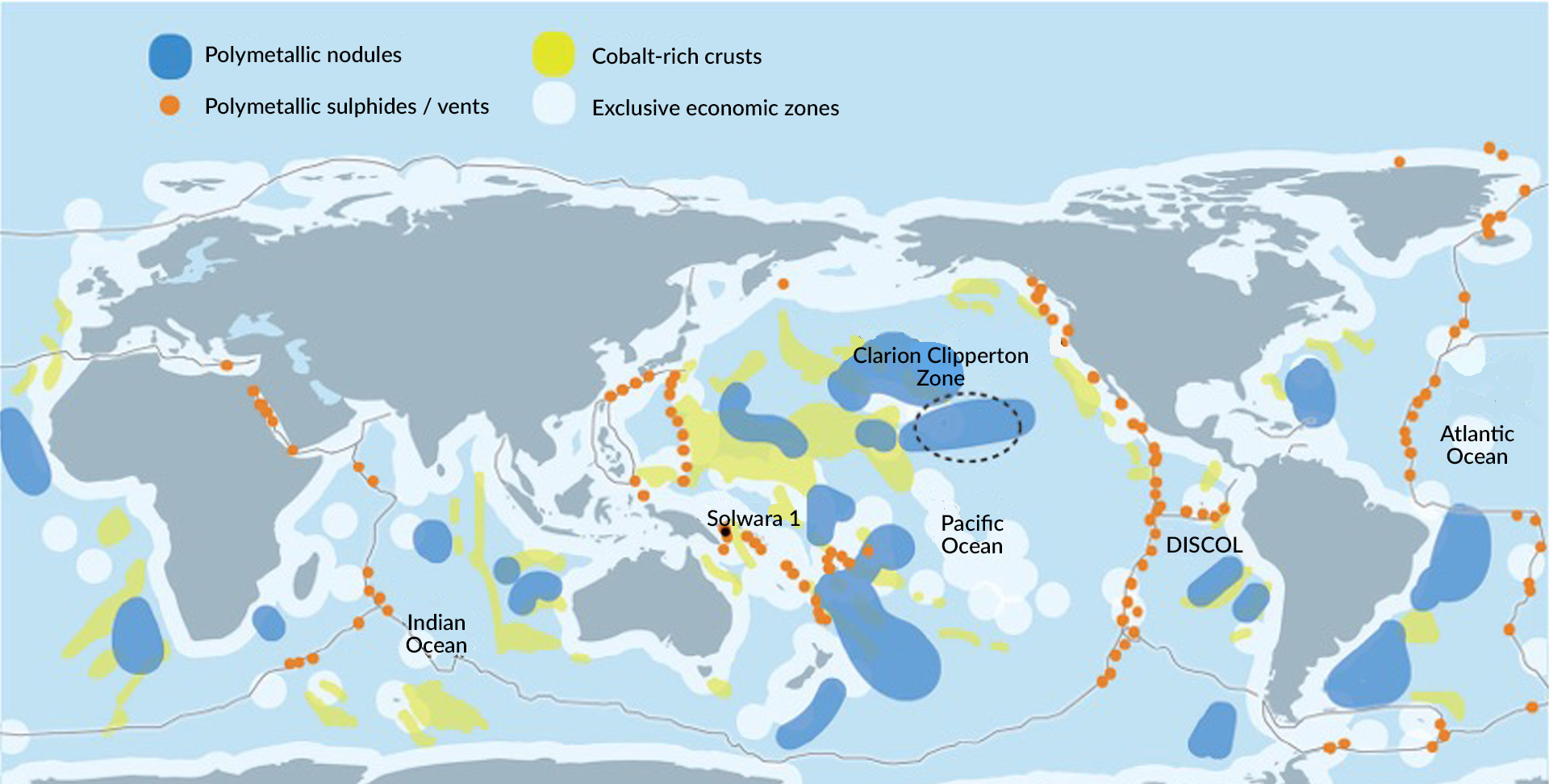WHERE IS DEEP SEA MINING HAPPENING?
There is an intense and growing interest in minerals exploration both in national and international waters.
While extensive seabed exploration has been carried out, no commercial deep sea mining operation has yet been established
Companies in partnership with some states are aggressively pursuing deep sea mining across the Pacific region. This is characterised by a lack of transparency, vested interests, and not adhering to the principles of free, prior and informed consent and the precautionary principle.
Over the last decade, these commercial actors have rapidly created machines for extracting minerals and metals from the deep seabed. But they have done so in the absence of research, regulations, environmental protections, and civil society consent. Financing, engineering, and public relations have been allowed to outrun science, law, community rights and policy.
Indigenous Peoples and organisations across the Pacific have called for the legal norm of Free, Prior, and Informed Consent (FPIC) to be applied to deep sea mining proposals in all jurisdictions. A growing number of Pacific leaders are calling for a ban on deep sea mining.
Deep Sea Mining in International Waters
Clarion Clipperton Zone (CCZ): The CCZ, a vast deep sea plain in the Pacific Ocean, is a hotspot for deep sea mining (DSM) exploration. This area, the size of Europe, holds valuable metals like manganese, nickel, cobalt, and copper. Despite extensive exploration, no commercial mining operations have begun. However, the potential impact on these virtually unknown ecosystems could be catastrophic.
International Seabed Authority (ISA): The ISA, headquartered in Jamaica, oversees deep sea mining in international waters, controlling 50% of the ocean floor. With 167 member countries, the ISA has granted 31 exploration permits covering 1.3 million square kilometers across the Pacific, Atlantic, and Indian Oceans. These permits could lead to the largest mining development in history, with irreversible environmental damage.
If regulations are rushed and mining begins in the Clarion Clipperton Zone (CCZ), it will trigger the largest mining operation in history—causing irreversible damage to one of Earth’s last untouched frontiers. Even if only a fraction of the licensed areas are exploited, mining could devastate tens of thousands of square kilometers, with far-reaching consequences that extend beyond the immediate area. The impact of a single mine, let alone the cumulative impacts of many mine, is unknown. The scale of destruction could very well be beyond repair.
The Deep Sea Mining Campaign, a member of the Deep Sea Conservation Coalition, has been actively involved in ISA negotiations. Follow these critical discussions through the DSCC International Seabed Authority Tracker.

Deep Sea Mining in National Waters
Countries control deep sea mining within their own maritime borders, known as Economic Exclusive Zones (EEZs).
Papua New Guinea (PNG), Tonga, Fiji, Vanuatu, Solomon Islands and the Cook Islands all have active mineral exploration licences in their national waters (Exclusive Economic Zones or EEZs). This includes nodules on the seabed in the North Pacific and within the EEZs of several countries including the Cook Islands, Kiribati, Palau and Tuvalu. In the Cook Islands, exploration has recently begun.
The world’s first deep sea mine to be given an operating licence, Solwara 1 in PNG’s EEZ, was formerly held by Canadian company Nautilus Minerals. It was planned to mine mineral-rich hydrothermal vents, deposits of copper, gold, zinc and silver from the Bismarck Sea of PNG. However, due to fierce opposition from local coastal communities, environmental concerns and financing woes the company liquidated in 2019 leaving the PNG government $157m out of pocket.
This failure has fueled global calls for bans and moratoria, with 30 states now pushing back against seabed mining. Indigenous communities across the Pacific demand that any mining proposals respect Free, Prior, and Informed Consent (FPIC), while more Pacific leaders are advocating for a complete ban.
Indigenous Peoples and organisations across the Pacific have called for the legal norm of Free, Prior, and Informed Consent (FPIC) to be applied to deep sea mining proposals in all jurisdictions. A growing number of Pacific leaders are calling for a ban on deep sea mining.
